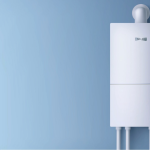NAC is a type of supplement that contains cysteine, which is an amino acid found in high-protein foods such as eggs and turkey. Cysteine is semi-essential and serves as a precursor to glutathione. Glutathione is a potent antioxidant that helps prevent cellular damage caused by free radicals.
Lowered glutathione levels can lead to oxidative stress, inflammation, and infection. One of the benefits of NAC is that it helps to increase glutathione levels and provides multiple benefits to the immune system, as discussed below:
It Helps to Combat Free Radicals
NAC is a natural compound in the body that produces cysteine and glutathione, powerful antioxidants. These compounds help the immune system and break down free radicals, which can damage cells and cause oxidative stress. This can lead to various health problems, including heart disease, cancer, and other conditions. NAC can also prevent side effects from some medications and help break down mucus, which may be helpful for people with COPD or chronic bronchitis.
N-acetyl cysteine is a precursor in synthesizing glutathione, the most powerful antioxidant in the human body. Glutathione can prevent oxidative damage to proteins, DNA, and mitochondria and helps restore the cell’s oxidant-antioxidant balance. NAC can boost glutathione levels in the cell, which can counteract the effect of aging, drugs, poor diet, and environmental toxins on the immune system.
Another important function of NAC is its ability to inhibit the inflammatory response by altering the structure and binding of proteins. For example, it can reduce the production of angiotensin II in vascular smooth muscle cells and decrease the ability of T-cells to respond to cytokines by reducing NF-kB activity.
NAC can also be used as a mucolytic agent, breaking down the disulfide bonds in crosslinked mucus proteins and causing them to detach from the lung surface. This can significantly lower the viscosity and elasticity of mucus, making it easier to expel from the lungs.
It Helps to Combat Inflammation
NAC is a semi-essential amino acid that helps your body create glutathione, the body’s most powerful antioxidant. Glutathione neutralizes free radicals to help combat oxidative stress and inflammation, linked to many modern diseases, including diabetes and neurodegenerative diseases such as dementia and heart disease.
Several studies have found that NAC can improve oxidative stress and reduce inflammation by increasing glutathione production in the body. It can also improve cellular immunity by inhibiting inflammatory pathways such as the NF-kB pathway and reducing the replication of COVID-19 in human lung epithelial cells.
In addition, NAC has been shown to strengthen the effect of antiviral medications and acetaminophen, especially when given within eight hours of taking acetaminophen. It is also helpful in treating hepatitis C because it can increase glutathione levels and decrease free oxygen radicals.
NAC is also useful in boosting the immune system during detoxification due to its antioxidant properties. It can also improve psychiatric disorders by inhibiting oxidative damage to brain cells and decreasing free radicals that can contribute to depression, schizophrenia, and bipolar disorder. Lastly, NAC has been shown to reduce the digestive tract’s bacterial overgrowth and treat the leaky gut syndrome. It can even help treat respiratory conditions such as chronic bronchitis and COPD by improving lung function, preventing disease worsening, and helping break down mucus.
It Helps to Combat Bacteria
NAC is an antioxidant that can help to fight off bacteria. It works by increasing the production of glutathione. Glutathione is the body’s most important molecule for protecting cells against damage caused by oxidation, infection, and other stressors. When you have too little glutathione, it can lead to a variety of health problems, including chronic disease and aging. NAC has been shown to boost glutathione levels and help decrease oxidative stress markers (such as oxidized LDL cholesterol).
Another way that NAC helps to combat bacteria is by inhibiting bacterial growth. Many autoimmune diseases are associated with inflammation, and NAC has been shown to suppress inflammation in some studies. This is because it can help regulate inflammatory cytokines involved in the development of autoimmune disease.
N-acetyl cysteine also has a long history of supporting optimal detoxification processes, lung health, and immune function. It has been found to increase glutathione levels and reduce oxidative stress. It can improve the life of T-cells by reducing their vulnerability to exhaustion from an excessive inflammatory response.
NAC can help break down lung mucus and replenish glutathione, a powerful antioxidant that helps prevent airway damage. Additionally, it has been found to decrease the frequency of COPD and chronic bronchitis flares.
It Helps to Combat Mucus
Mucus doesn’t win any popularity contests, but it is a vital part of the immune system, lining delicate tissue like our nose, throat, lungs, and stomach. It protects us from dust and other potentially harmful compounds by trapping them until the body can expel them. NAC can help thin mucus and break down biofilm that might be forming in the body, especially in the gut. It’s a natural anti-microbial and also known to inhibit bacteria such as Prevotella, which can overgrow when normal levels of healthy bacteria are disrupted by antibiotics or other reasons (such as poor diet).
NAC has long been used for its ability to improve lung health. It has been shown to decrease oxidative stress in the lungs, which is important for optimal detoxification and immune function. It can also reduce symptoms of chronic bronchitis, COPD, and emphysema. It works by hydrolyzing disulfide bonds in the proteins that make up mucus, decreasing its viscosity and making it easier to cough up.
NAC is a precursor – or building block – to glutathione, one of the body’s most powerful antioxidants that helps reduce damage caused by free radicals in the body. Glutathione comprises three amino acids: cysteine, glutamine, and glycine. When taken regularly, NAC supplies the cysteine component and can replenish glutathione and promote a more balanced immune response.
Lynn Martelli is an editor at Readability. She received her MFA in Creative Writing from Antioch University and has worked as an editor for over 10 years. Lynn has edited a wide variety of books, including fiction, non-fiction, memoirs, and more. In her free time, Lynn enjoys reading, writing, and spending time with her family and friends.















